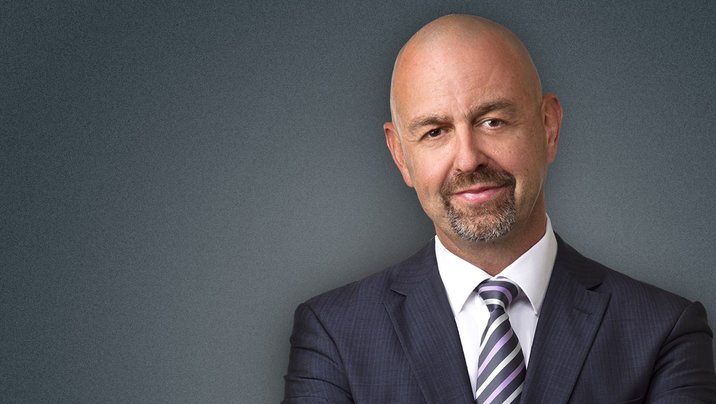Stop listening to sales guru's and just ask your customers how they want to buy?
Yes, that’s me in the picture, and yes, I’m suggesting that everyone should stop listening to sales thought leaders like me, and go a speak with your buyers instead.
Seriously, why do we sales folks spend so much time debating what is the right and wrong in sales when none of our opinions matter UNLESS those opinions are founded in the specific buyer context that relates to your industry? By now, we should all know that the only opinion that matters is the buyer’s, and they are telling us (loud and clear) via their actions what they will, and will not, accept in 2017 and beyond. This post will explore the ridiculousness of assuming that you know what buyers want.
I rarely see vendors actually listening to what buyers are saying, preferring (apparently) to default to heeding the advice of a sales guru whom is simply flogging their own outdated “I’ll show you how to get a 20% sales uplift with my unique blah blah blah approach….”. The truth is that very little (if any) investment is being made by vendors in truly understanding what buyers want, and today’s declining sales performance (generally speaking) is best summed up buy what Matt Dixon (CEB) said:
This is the reason that my first book is full of empirical research derived directly from interviews with professional buyers and some recent buyer feedback provided me with a much needed 'wake-up call'.
Some examples:
Customer #1 - “We actually sit around laughing after vendors sales meetings – they all wear the same clothes, talk the same, they all try to convince us that their company and product is the best, and they all try using the same tired old techniques like SPIN Selling, Solution Selling….we can almost predict exactly what they will say next” - Head of Procurement & Vendor Management - Australian Airline.
Customer #2 - “We can no longer justify the time required to engage with any Tier 3 vendors, and we are now redirecting Tier 3 vendors to engage via a prime (Tier 1) vendor. New vendors will never get a seat at the table when we are trying to do more business with less vendors" - Head of Procurement - Australian Bank.
Customer #3 - “My team and I would do all the preliminary work ourselves or use an independent third party BEFORE we bother speaking to a vendor. There are a lot of research sources (Gartner et al) and independent advisers available to avoid being swamped by vendor sales people, whose only role is to sell their product…we dont allow sales people to influence our data driven decision making” - CIO of Large Australian Corporate.
Who else can help?
Whenever I want to sanity check my own thoughts and opinions about the modern approach to sales, I seek the input of buyers and people like Steven Ward whom has a keen interest in Sales from a CIOs perspective. Two other well-know people on LinkedIn whom I regularly seek the counsel of are Michelle Redfern and Derek Wyszynski both of whom have an acute understanding of what it’s like to be in sales (in recent times), but most importantly, what it’s like to be sat opposite the seller as a professional buyer.
Some of you will also have heard me refer to HubSpot, which I continue to hold up as a great template for the modern approach to sales - again, I’m not being paid to endorse HubSpot – just credit where credit is due. HubSpot’s approach to 'sales' is beautifully explained by the man that designed it – Mark Roberge. Mark has written a great book that every sales person should read – The Sales Acceleration Formula, and this book describes how the entire HubSpot business approach has been developed around the buyers context and interests.
It’s these buyer-centric opinions that I cherish the most. Thus, rather than just asking a sales thought leader about what you should be doing, go and ask a buyer in your industry some of the following:
- What does an ideal buying journey look like for you?
- How do you measure your successful vendor relationships?
- Can you give me an example of an exemplary experience you had with a vendor?
- What is your preferred way of doing business with vendors? Pre and post-sale?
- What role do you expect your vendor sales person to play – pre and post sale?
- How do you arrange your vendor stack?
- Do you have a staged approach to bringing new vendors on board, and if so, what does that look like?
- Do you have any policies in place for blocking or on-boarding new vendors?
- Are you in the process (like many businesses) of rationalizing vendors?
The answers to these questions are the ‘ground rules’ on how your buyers WANT YOU TO ENGAGE. And yes, it varies for every business however, without a clear understanding of these specific ground rules, how can you possibly expect to be able to play the game effectively? That is, before you default straight into your standard old linear sales routine of “qualifying-solution design-proposal-negotiation-close”, you might want to understand the extent to which any part of YOUR sales process is even relevant or congruent with how your buyer prefers to buy. Trust me, buyers could care less about the process that you may want to drive.
In short, as the main pic for this post satirically suggests, do not listen to sales thought leaders UNLESS they can demonstrate that their opinions actually reflect the modern buyer context. Far too many sales guru's are stuck in the past selling ‘sales optimization’ when they should be selling ‘buying optimization’.
Once again, if you have any doubts here then just go and speak with your buyers. It’s their viewpoints that matter when it comes to designing and executing your sales approach.
Adapt-Learn-Change.

